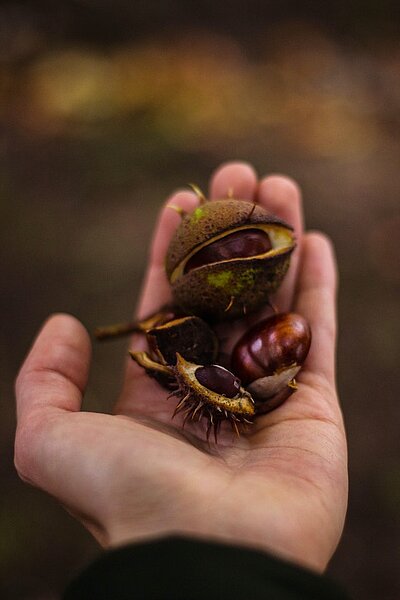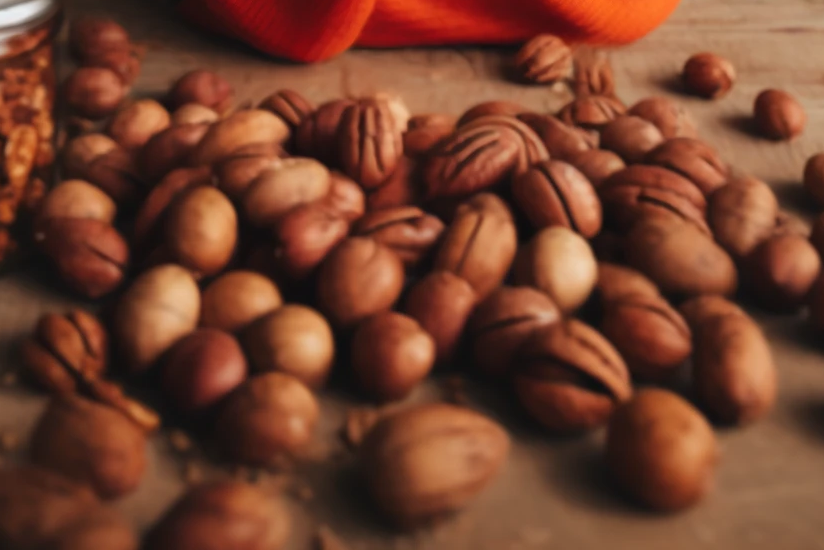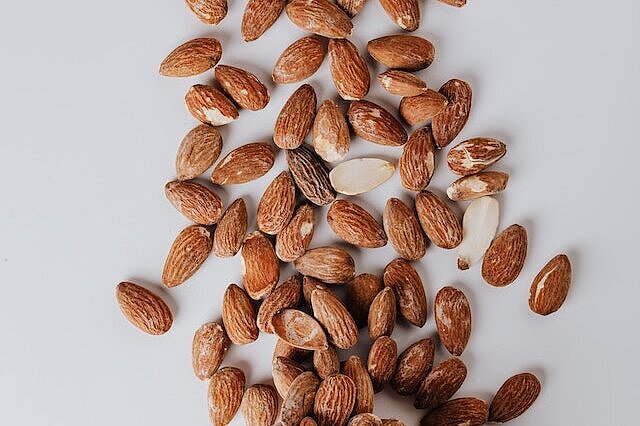Chestnut

Chestnuts are everywhere in the fall and invite you to collect them and make crafts. But what happens if your dog eats a chestnut? Is it dangerous or even healthy? In this article, you'll find out everything you need to know about chestnuts in relation to dogs.
What is a chestnut?
A chestnut is the fruit of a chestnut tree, which belongs to the beech family. There are various types of chestnuts, which differ in shape, size and taste. The best known are the horse chestnut and the sweet chestnut.
The horse chestnut is the variety you probably see most often on your walks. It has a round shape with a light-colored spot on the surface and grows in a green, prickly shell. The horse chestnut is not edible and is poisonous to humans and animals.
The sweet chestnut is also known as chestnut or sweet chestnut. It has a heart-shaped form with a pointed tip and also grows in a green, prickly shell. Chestnuts are edible and are often used as a food or snack.
Benefits of chestnuts for dogs
Chestnuts are the only type of chestnut you can feed your dog. It has several benefits for your four-legged friend's health:
- It is rich in protein, fiber, vitamins and minerals.
- It is low in fat and calories compared to other nuts.
- It provides quick energy and strengthens the nervous system.
- It is easy to digest and can help with diarrhea.
You can give your dog boiled and peeled chestnuts as an occasional snack or as a side dish with food. However, make sure that you don't give him too many, as they can otherwise lead to bloating or abdominal pain.
Disadvantages of chestnuts for dogs
Horse chestnuts are the type of chestnut that you should never give your dog. It has several disadvantages for your four-legged friend's health:
- It is poisonous to dogs and can lead to symptoms of poisoning such as stomach pain, diarrhea, vomiting, respiratory distress or coma.
- It is very large and can lead to intestinal obstruction if swallowed.
- It can trigger allergies or intolerances.
You should therefore make sure that your dog does not eat or play with horse chestnuts. If you suspect that your dog has eaten a horse chestnut, you should consult a vet immediately.
Not all chestnuts are the same. While the sweet chestnut can be a healthy snack for your dog, the horse chestnut is poisonous and dangerous for him.
Properties 4
Are you looking for other ingredients with a specific property?
Just click on them to find more.
If you notice any signs of hypersensitivity or poisoning in your dog, you should see your vet immediately. We are not a substitute for a vet, but we try to be as accurate as possible. Every dog reacts differently and we recommend you get a second opinion or consult your vet if in doubt.
Stay healthy and take good care of your four-legged friend!😊
Similar to Chestnut
Hazelnuts are the seeds of the hazelnut, a plant from the birch family. The hazelnut grows as a shrub or small tree and bears round or oval nuts with a hard shell and a sweet kernel in the fall....
Walnuts are the fruit of the walnut tree, which belongs to the beech family. They grow in a green shell that opens in the fall to reveal the nut. The nut has a hard, brown shell and a soft,...
Pecans are the fruit of the pecan tree, which belongs to the walnut family. The nuts grow in hard shells, which usually have to be cracked with a tool. The word pecan comes from the Native Americans...
Almonds are the seeds of the almond tree, which belongs to the rose family. They grow in a hard shell that must be removed before consumption. There are two types of almonds: sweet almonds and...



